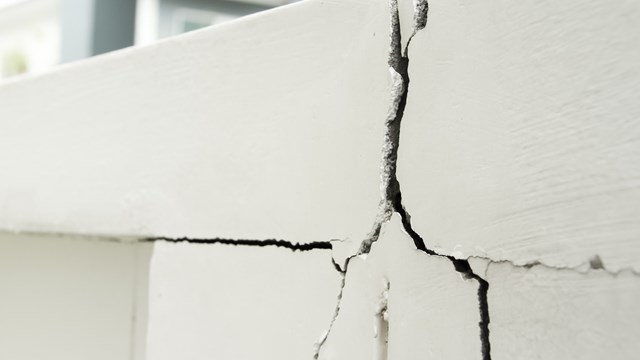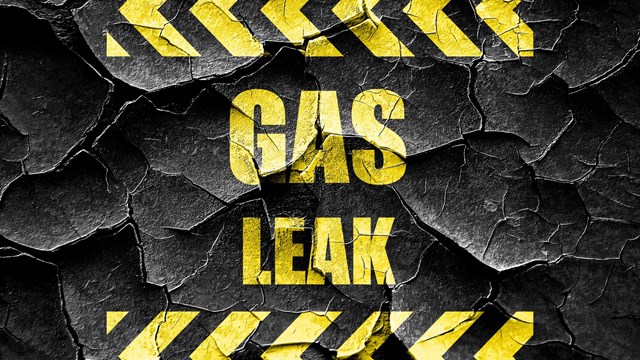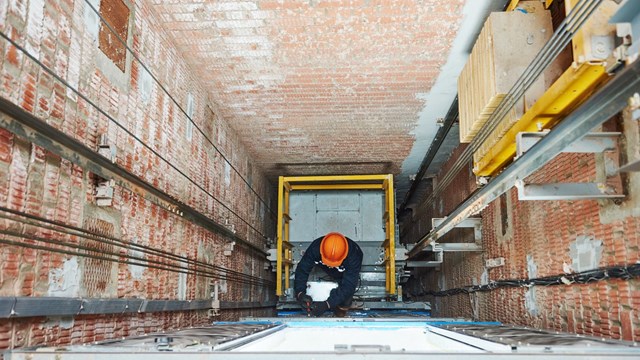The last few years have been stressful and uncertain for many in the real estate game—developers have had to adjust projections and expectations for certain projects. Likewise, sellers and brokers have had to acclimate to a market that, while perhaps not as bleak as in some other parts of the country, is not seeing quite the blaze of activity that characterized the early part of the last decade. Managers and board members have been up against a wave of foreclosures, residents in arrears with fees and assessments, and other recession-related and non-recession-related challenges. Boards are fighting, and there have also been many legislative changes that make it difficult for managers to plan projects the way they once used to, giving them a real challenge on how to address issues that were once a breeze.
But with a new year comes fresh, new opportunities—and some managers are hoping for some positive changes in their industry so that they can get back to business as usual.
Cut Our Costs!
Money has been extraordinarily tight for a while now, and many condos and co-ops have had to figure out how to make ends meet with more and more limitations. John Lipuma of JAL Diversified Management in Brooklyn says many federal and state regulations have caused operating costs to soar, making it very hard to keep fees down for residents.
Gregory Cohen of Queens-based Impact Management hopes that expenses start to stabilize more and fluctuate less in the new year. “Barrels of oil have been ranging from about $45 per barrel to about $150 per barrel,” he says, illustrating the wide swings in cost. He says prices have gone down to $80 per barrel for now, but he’d like it to stay that way for a while.
For Anton Cirulli, director of management for Manhattan’s Lawrence Properties, it's all about finding ways for boards to spend less money. “The question [for them] is how do we hold costs if not reduce them?” he says.
What they want to do is to look at items on an expenditure list and see where things can be done for less, he says. For instance, Cirulli says that instead of having a canopy cleaned two or three times a month, have it cleaned monthly. Instead of having marble polished three or four times a year, decrease that number to two or three. This will lessen the amount of money spent on cleaning products, for instance.
He says some of his boards have also explored cutting personnel to offset budget struggles. Changing to an automated elevator instead of having someone manually keep an eye on it could save money. “Find everywhere you can cut costs,” he says. “You save ten percent here, ten percent there…” It can add up.
Cirulli also suggests that charging more for services that were once free or cheaper, such as handymen, storage bins, bike racks and gym memberships, could help with monetary issues. He recommends establishing a menu for the building that would illustrate how much services would cost.
Less Regulation
Lipuma says that with all the new legislation passed in the past few years, costs need to be decreased by having less rules and regulations imposed in the future. “It’s crazy,” he says. “It’s making real estate unaffordable. It’s unnecessary and if it doesn’t stop, it will destroy the industry.” Lipuma says that regulations have tried to restrict how much fuel buildings use, mandate what type of lighting is installed to save on energy costs, direct how lead paint should be handled and a plethora of other rules about moles and bedbugs, for example, that just keep adding up to a headache.
He cites, for example, that a new regulation mandates an apartment is “dusted” after an owner moves out, which can cost $300 per apartment. One of his buildings now has nine vacant units—that equals $2,700. For the apartments with lead paint, he says that the paint needs to be stripped off or the sheet-rock needs to be reinstalled from scratch.
He also cites the new smoking ban in New York City as a pain for real estate. “The whole city is polluted,” he says. “If you live in a regular apartment above a bar, you’ll get asphyxiated with smoke.” With all these rules and regulations, Lipuma says an owner is eventually going to get fed up and leave, he says.
Innovations and Projects
Cohen says his buildings have been taking on new projects that he’d like to see done before this year ends to help out in the coming years.
His biggest project so far has been transitioning from oil to gas in some of his buildings. He says because the city has mandated such a transition, it now becomes a race against the clock because utility companies will no longer offer incentives to buildings for changing over to gas themselves.
The cost of installing the equipment to get the buildings changed over can range from $40,000 to $60,000 Cohen says but because of energy costs that are cut and a tax exemption which the building would be qualified for, it’s worth it and pays off. Plus, he says having gas instead of oil creates less wear and tear and is cleaner.
Safety
Along with the desire to have certain projects done, Alex Kalajian of Solstice Residential Group in Manhattan, would like to see his residents and employees safe and happy.
“One of the more pressing and complicated issues which has surfaced over the last couple of years, and which the Department of Buildings started enforcing as of July 1, 2009, is that of site safety regulations in connection with exterior façade repairs,” says Kalajian. [These affect affect “Major Buildings” as defined in the 2008 building code as, amongst other terms, buildings with more than ten stories, in some cases 14 stories, or 125 feet in height.]
Kalajian says that for the safety of pedestrians, residents, workers and owners alike, and for the preservation of property, there is no doubt that a site safety program must exist in New York City.
“The benefits of site safety are crystal clear,” he says.
However, he says that what is not clear is the process by which the technical director of the DOB’s Buildings Enforcement Safety Team (which the industry has come to know as the BEST squad) undertakes in examining site safety plans.
“The standards for raising objections, delays in reviewing the plans, timing expectations for approval and whether a plan is required or whether an exemption could or should be granted” are all uncertain, Kalajian says.
“Let’s face it; on average, site safety companies are charging $70 to $85 per hour for site safety coordinators and anywhere from $3,000 to as much as $10,000 for site safety plans, depending on the scope of work, which collectively add thousands of dollars to qualifying façade projects,” he points out.
“Why is the tenth floor the threshold for site safety requirements?” he asks. “One can facetiously ask whether a brick falling from the ninth floor of a building is any less likely to be just as devastating as a brick falling from the fourteenth floor?”
“As a management professional, I have held discussions with numerous professional engineers, architects, contractors and DOB staff about site safety where the recurring theme has been one of cautiously qualified explanations and apprehension on which requirements apply and where,” he says. “My holiday wish, is an industry-wide consensus on the standards to be applied with respect to the umbrella of site safety and everything which lies beneath it.”
Most managers agree that safety is a big part of their holiday wish-list.
“We’d just like to see everyone happy and healthy,” Cohen says.
Bernadette Marciniak is a freelance writer and a frequent contributor to The Cooperator.










Leave a Comment